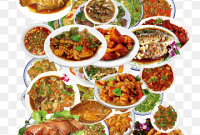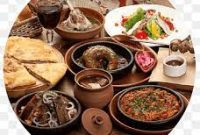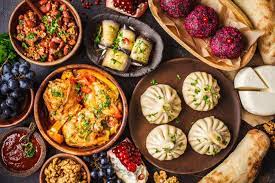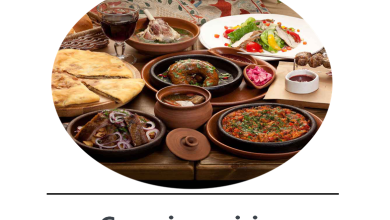Is Georgian meat halal?
Foods and drinks classified as “halal” are those that comply with Islamic dietary regulations. In the case of meat, the following requirements are usually necessary for it to be deemed halal:
- At the moment of slaughter, the animal must be in good condition.
When killing occurs, the name of Allah (God) should be spoken, usually with the phrase “Bismillah” (In the name of Allah).
A Muslim who is of sound mind should kill the animal.
The animal’s body has to be completely empty of blood.
Given that Georgia is mostly a Christian state, it might be difficult to locate meat with a halal certification outside of places with sizable Muslim populations or niche markets. It’s best to visit or get in touch with neighborhood mosques, Islamic centers, or halal food stores if you’re especially seeking for halal meat in Georgia since they might be able to tell you where to get it.
Furthermore, some multinational food corporations could ship meat with halal certification to nations with a majority of non-Muslims. Certain supermarkets and specialty shops may carry imported halal meat products.
When buying such items, it’s crucial to confirm the legitimacy of halal certificates and whether the meat complies with Islamic dietary regulations. When purchasing halal meat, be sure to check for credible halal certification marks as different certifying bodies may have different criteria.

Do Georgians eat spicy food?
It is not common knowledge that Georgian food is rather hot. Rather, it is well known for using a broad range of herbs and spices to give food more taste and depth. Fresh herbs like cilantro and tarragon, flavorful spices like fenugreek and coriander, and unusual seasonings like khmeli suneli—a traditional Georgian spice blend—are just a few of the elements that make up Georgian cuisine. These ingredients add to the rich and varied tastes of Georgian cuisine.
Nevertheless, there are certain fiery and tasty dishes in Georgian cuisine, such adjika, a hot sauce mixed with garlic, chili peppers, and other spices. Depending on one’s preferences and the location of Georgia, the degree of spiciness might change.
All things considered, even though Georgian food isn’t usually as spicy as some other cuisines, it still has a lot of flavor and may be a fulfilling and tasty meal for people who enjoy a variety of well-seasoned foods.
Advantages and Disadvantages:
Like any other cuisine, Georgian food has its pros and cons. It’s crucial to remember that tastes in food are quite personal, and what one person considers to be a benefit may not be the same for another. The following are some general benefits and drawbacks of Georgian cuisine:
Advantages:
- Rich and Flavorful: The tastes of Georgian food are renowned for being deep and nuanced. It blends a variety of herbs, spices, and ingredients to create dishes that have a distinct flavor.
- Variety: A wide variety of foods are served in Georgian cuisine, including grilled meats, crisp salads, and substantial stews like khachapuri (bread stuffed with cheese). Everybody can find something to their liking, and it can accommodate a variety of diets, including vegetarian alternatives.
- Fresh Ingredients: Fresh and locally obtained ingredients are frequently used in Georgian cuisine, which can improve the dish’s quality and flavor.
- Cultural Experience: Since Georgian cuisine is often prepared and presented in a traditional manner and eating is a social and communal occasion, sampling it may be a cultural experience.
- Health Benefits: Lean meats, vegetables, and other healthful foods are common in Georgian cuisine, which helps to create a diet that is both balanced and nutrient-dense.

Disadvantages:
- Heavy and Filling: For individuals seeking lighter or lower-calorie choices, several Georgian foods may not be ideal due to their high caloric content.
- High Salt and Fat Content: Certain traditional foods may not be appropriate for people with dietary restrictions or health issues due to their excessive salt and fat levels.
- Spiciness: Although hot peppers and spices are not often used in Georgian cuisine, some dishes do contain them, therefore people with limited tolerance for heat may find it difficult to enjoy.
- Lack of Variety in Some Regions: Outside of large cities and areas with a sizable Georgian population, the availability of Georgian cuisine might vary. It could be difficult to locate a large selection of Georgian meals in some places.
- Cooking Time: Some Georgian meals need a lot of time to make, so people with hectic schedules could find it inconvenient.


In conclusion, a lot of people enjoy the rich and tasty dishes of Georgian cuisine, but because of its richness, spiciness, or dietary restrictions, it might not be to everyone’s taste. The benefits and drawbacks might change based on dietary requirements and personal preferences.




